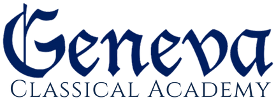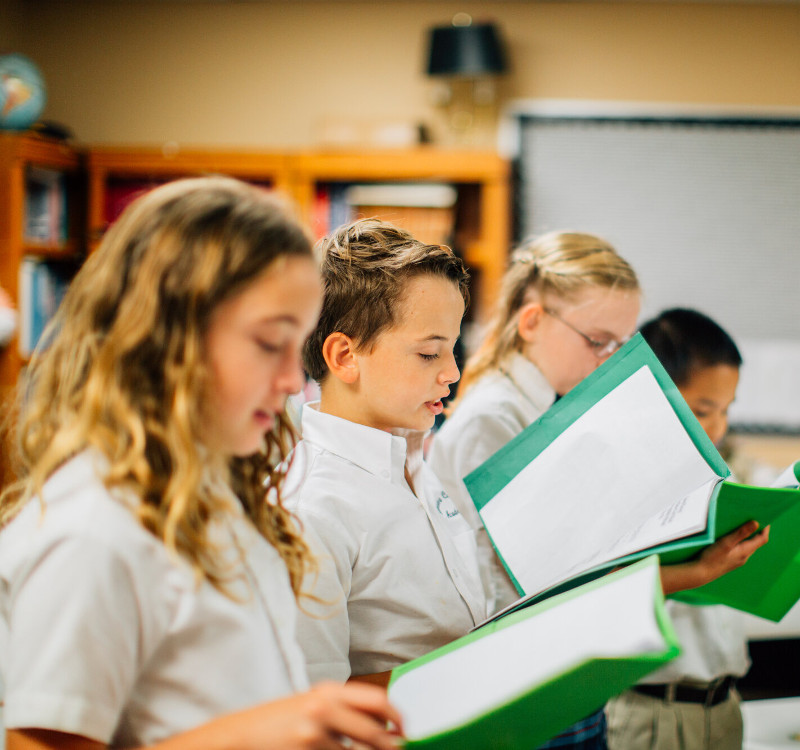About Us
At Geneva Classical Academy the sights and sounds of enthusiastic learning are everywhere:
Voices sing joyful hymns or catchy grammar jingles.
Fourth graders practice a 1500-year history timeline, reveling in the choreography.
Students classify sentences or dance a jig to the rhythm of Latin declensions.
Children dress in period clothes, bringing oral presentations to life.
Dialectic students, learning the rules of formal logic, eagerly contribute to discussions about great works of literature such as the Epic of Gilgamesh and Homer’s Iliad.
Rhetoric students, debating ideas in The Federalist Papers and analyzing the worldview of Victorian authors, are training to identify and articulate truth in order to argue persuasively.
Students exude eagerness to learn outside the classroom.
Grammar students visit ponds to study habitat, the philharmonic to absorb the beauty of a symphony, and an aeronautics museum to ignite their curiosity about WWII.
Dialectic students travel to sites such as Charleston, SC, to study American History while rhetoric students visit Washington, DC, to see the best ideals of Western civilization come to life.
What is Geneva’s secret for fostering enthusiastic learners?
What propelled the Ancients to reach for the stars was their belief in an “originating principle” of all that is. What the Greek philosophers called “logos,” the apostle John identified as Jesus: “In the beginning was the Word” (John 1:1). The originating principle moved the Ancients to pursue truth and beauty.
Classical education flourishes when united with Christianity. The Reformers built upon this tested and proven education model to enable all people to read the Scriptures for themselves and thereby grow in the grace and knowledge of Christ and in their understanding of the world.
Christ In Us, The Hope of Glory
Because we live and move and have our being in Christ, we evaluate all of life through the Scriptures. The Classical Christian model equips students to examine everything through this scriptural lens so that they are able to determine whether the ideals, philosophies, or forms of government present are true and good.
The Ancients knew that the art of learning is learning to think. Geneva students are excited about learning in an atmosphere that educates them to think well so that they might have a lasting impact on this and future cultures.
The Art of Learning is Learning to Think.
Why the Trivium?
Are present educational methods teaching children to think? Will people know if a government asks them to do what is wrong? Will they know how to communicate that wrong? Will they have the ability to persuade others of what is right? Classical education focuses on equipping students to learn and think for themselves so they can influence the culture around them. The Trivium, classical education’s three-fold approach, teaches students the critical art of thinking by targeting their abilities according to age, thus helping them stretch to their full learning potential.


